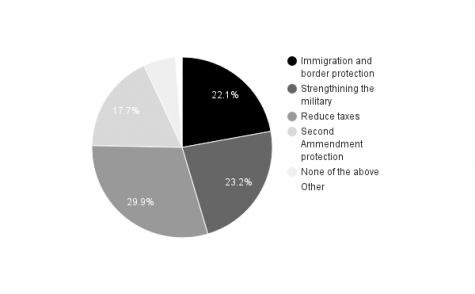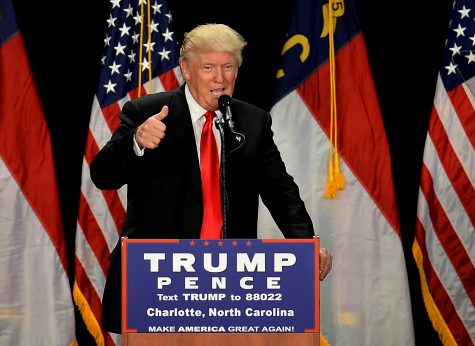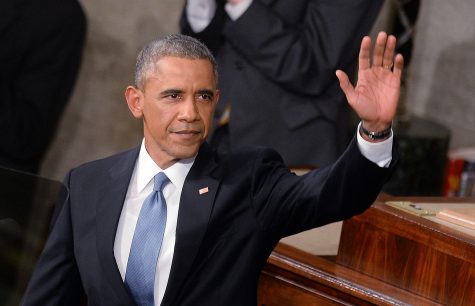The results are in: MHS weighs in on presidential election
As we all know, election day falls on November 8 this year and the presidential candidates are crazier than ever before. Since so few students are able to vote this year, staff at The Chief thought it would be interesting to see how students feel about the candidates and how they would vote by holding a poll.
Throughout the week of October 17, social studies teachers were asked to take a few minutes of their class time to allow students to participate in a series of polls. The result was nearly 900 responses, which is about half of the students in the entire main campus. During this week, social studies students also participated in a district wide mock election sponsored by Youth Law Initiative,
The questionnaire asked things such as the political party that the student’s family agrees with, which policies the student views as positive, and who the student thinks should be elected as president.
Many feel it is important for students to participate in a mock election in order to get an understanding of our democracy and our rights as American citizens.
“It’s our civic right; it’s our civic duty,” social studies Curriculum Associate Mr. Brian Trapani said. “It’s important for students who will become our future leaders to really consider the issues that are out there.”
Regarding the mock election and participating in a survey for an election that most students will not be of age to actually cast a vote in, Mr. Trapani said, “It’s important for students to get involved in the process. Even if it’s a mock election, it encourages students to see who the candidates are and consider who they are voting for and the reasons that they are voting for that person.”
The results of the survey were not surprising. The most common answer to the question regarding the political party affiliation of the student and his family was Republican with 48.4% of voters selecting this choice. This result is not surprising, considering Massapequa has a predominantly Republican population.
The runner up to Republican was “I’m not sure” with an astounding 21% of voters choosing this option.
The second question asked students which of Donald Trump’s policies they most agreed with. The most popular response by far was reducing taxes.
On the other hand, the least popular response (aside from ‘Other’) was none of the above, indicating that the 12.5 % that selected this do not agree with Trump on any topics.
Similarly, the third question asked students which of Clinton’s policies they most agreed with. The most popular reply was regarding women’s rights and opportunity. In light of recent news reports and accusations by women against Mr. Trump it makes sense that so many people would select this choice, especially if they lean towards Hillary Clinton in this particular election.
Another question prompted students to share which presidential and vice presidential debates they tuned in to. With nearly three quarters of participants stating they watched the presidential debate at Hofstra University, it is clear that Massapequa’s student body has some knowledge on the issues and where the candidates stand.
Now, the question we have all been waiting for: which of the candidates were best suited for the job? In first place was Donald Trump with 47.1% of the votes. In second was, in fact, ‘neither,’ taking 23.7% of the votes which was followed by Hillary Clinton who was left with 18.4% of the votes. The other options included ‘uncertain’ and ‘other’ in which students wrote in a candidate. Though many write-in’s were serious, such as Bernie Sanders, Jill Stein, Gary Johnson, and Evan McMullin, others were clearly for laughs like Ken Bone, Fidel Castro, and Kanye West.
The final question asked students how gender influenced their decision in who is fit to be president. The results included 89.3% of students stating that gender had no impact on their choice while the other 10.7% took the gender of the candidates into account.
By looking at the results of this class election, it is possible to determine how students feel about certain candidates and their policies, how well educated students are on current events and politics, and how our views are influenced by our family’s viewpoints and our surroundings
(This article was contributed to and survey questions were written by Sarah Lefkowitz and Nicole Grappone.)



